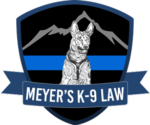Prolonged detention; Traffic Stop; Additional Reasonable Suspicion
While patrolling a high crime area, LE saw two vehicle stopped next to each other in a parking lot. It appeared to LE, based on training and experience, that a transaction took place where an occupant of one vehicle got out and approached the other vehicle and then got back into the original vehicle. The car containing the subject left the parking lot and LE followed it, discovering on the way that the vehicle was registered to subject. LE was familiar with subject because of a recent shooting incident which also involved a report of drug activity; also, subject had been a member of a criminal gang several years ago that engaged in drugs and weapons trafficking. Traffic stop for non-operational third brake light. Upon contact, subject showed LE his driver’ license and his CCW permit. When asked, subject picked up a handgun from the passenger seat and put it on the dashboard. Subject then asked to see if his brake light was indeed not working. Subject got out, went to the back of the car, and observed the light when LE pushed on the brake pedal. Because of LE’s prior knowledge of subject, even though his license, registration and CCW came back valid, LE continued to research the result of the shooting investigation to see if subject had been convicted of a felony, because that would invalidate the CCW. When asked, subject said he had been acquitted of the shooting incident, which was true. Subject asked if he could leave and LE told him he was not free to go until they were done with the traffic stop. LE then asked for proof of insurance. Subject said he had insurance, but told LE they did not have permission to look in the car for proof of insurance. LE did not let subject return to the vehicle because of the gun on the dash. LE (handler was one of three LE on scene) then retrieved his PSD and deployed PSD around the vehicle. While this was happening, subject volunteered to other officers that he had a bag of weed in the car. While the opinion does not address this, it is presumed there was a positive alert because a search of the vehicle ensued. Inside the car was marijuana in several places.
The court held that the original stop was justified because of the non-functioning tail light. Noting the holding in U.S. v. Sharpe (1985) 470 U.S. 675, 687, that the Fourth Amendment does not require officers to use the least intrusive or most efficient means conceivable to effectuate a traffic stop, the fact that additional information on subject was requested (but never received) was validated by LE’s concern that a felon may be in possession of a gun. The court held this was not an illegal prolongation of the traffic stop, because LE continued with his traffic investigation and his investigation on subject’s criminal history. The court also indicated that the specific facts of this case were unusual; subject voluntarily left his car (and gun) to look at his brake light so when LE asked for insurance, they could not let him back in until his criminal history was resolved. While these discussions were going on, the handler deployed the PSD. Therefore, the stop was not prolonged. In addition, the court held that LE had additional reasonable suspicion of drug activity due to the aforementioned information and observations.
